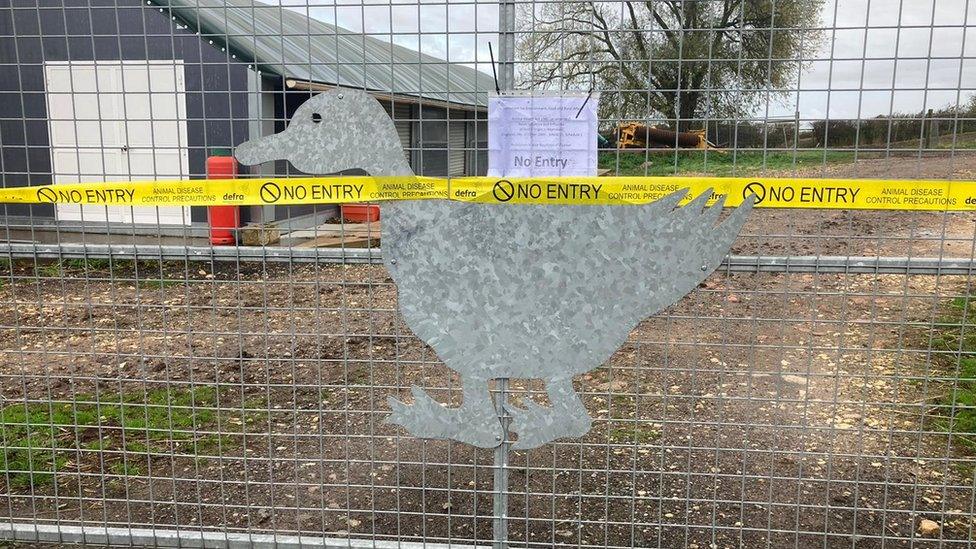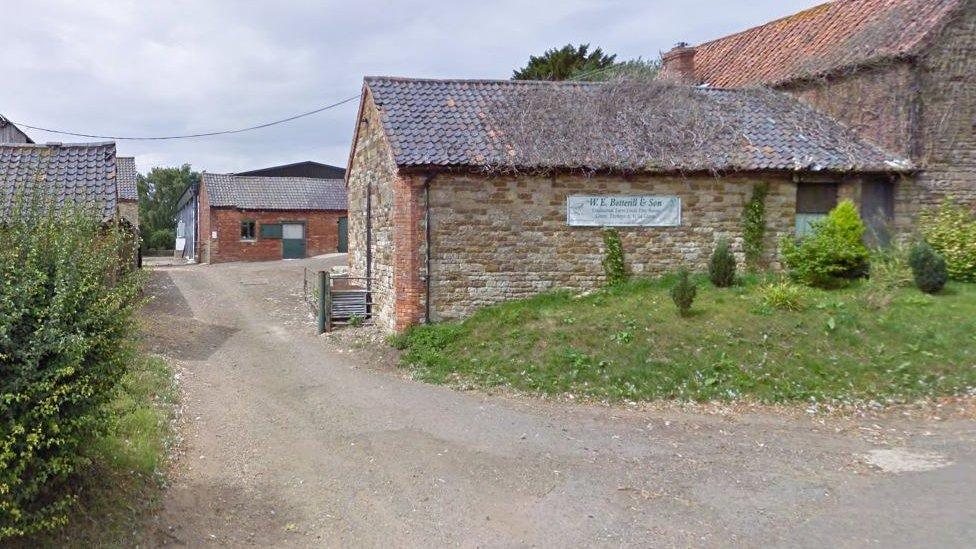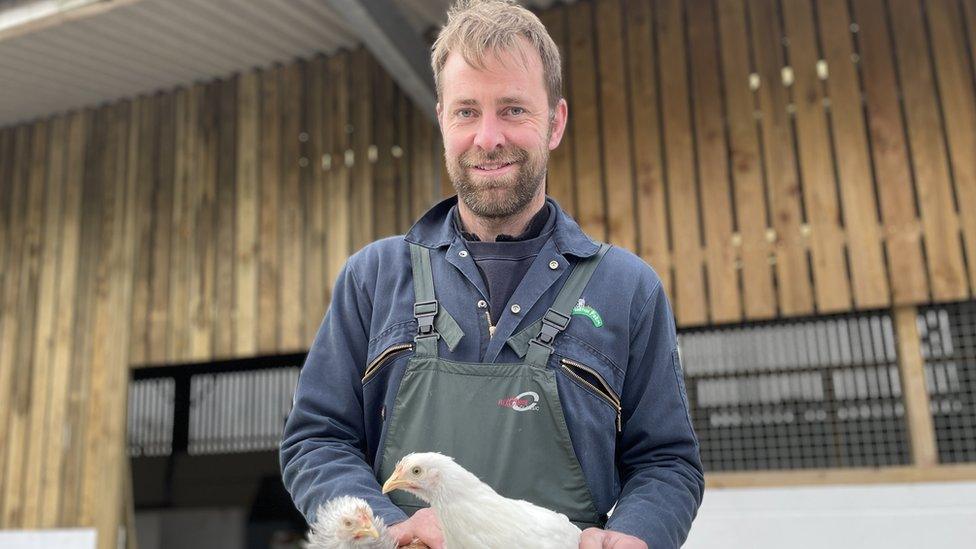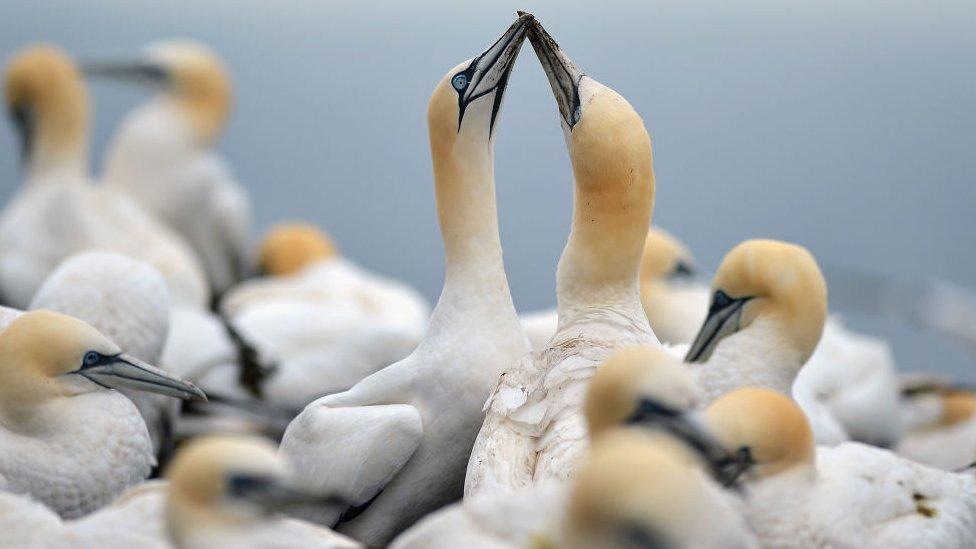Croxton Kerrial: Farmer says bird flu outbreak has been devastating
- Published

About 16,000 birds were culled at the Leicestershire farm after a vet confirmed they had avian influenza
A poultry farmer says he is still feeling the "devastating" impact of the bird flu outbreak last year.
W.E.Botterill & Son at Croxton Kerrial, in Leicestershire, was forced to cull about 16,000 birds after they contracted avian flu in October.
Richard Botterill says it will take 18 months to restart the family business, which they have run for over 70 years.
On Tuesday, owners were no longer required to keep poultry indoors to combat rising cases in England.
Since November, free-range poultry had been subject to a national housing order to try to curb the spread of the virus.
Last year saw the biggest ever outbreak of bird flu in the UK and the world, with four million farm birds culled.
'Major blow'
The family is well-known in the area for leading geese around the village to a paddock where they graze.
Mr Botterill said he suspected they caught the virus from visiting wild birds.
"To know you've got to lose those birds because they've got a problem, it's devastating," he said.
"I'm not saying they're like pets, because they're not, but it's that sort of feeling."

Richard Botterill said he had been cleaning and making repairs on the family-run farm since the outbreak
The majority of the geese, turkeys, ducks and chickens at the farm, near Melton Mowbray, had been ordered by local people and businesses for Christmas.
"As a business, to lose one Christmas production is bad, customers have been brilliant, but to lose them for two years, that would be a major blow and potentially it could mean we could lose them forever," Mr Botterill said.
He said the family would now have to start from scratch: "All and all from the point of infection to actually getting restarted, it's going to be an 18 month-period that we're not producing anything and also not generating any income to the farm."
Mr Botterill said although he was not able to restock his flock yet, he was rearing birds on a neighbouring farm and hopes the birds will be grazing on his fields again by the end of November.

Follow BBC East Midlands on Facebook, external, on Twitter, external, or on Instagram, external. Send your story ideas to eastmidsnews@bbc.co.uk, external.
Related topics
- Published18 April 2023

- Published18 April 2023

- Published3 November 2022
